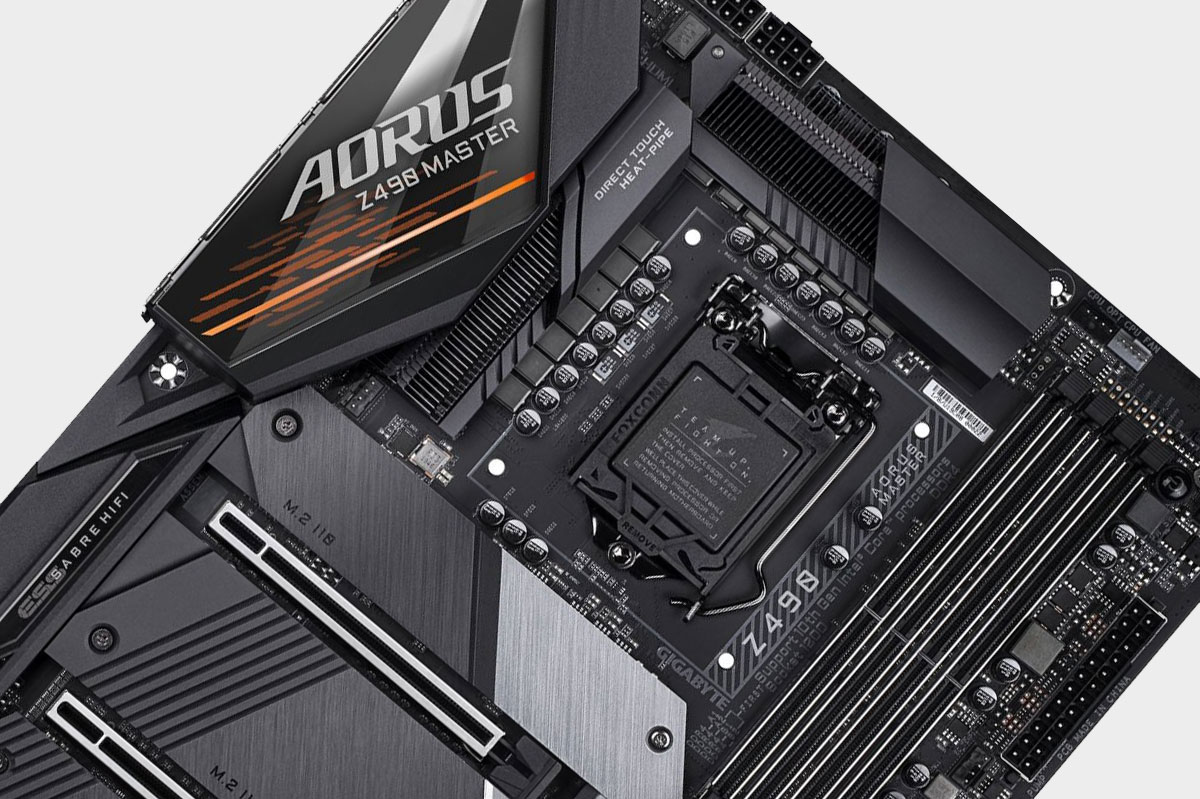Yes, your Z490 motherboard will support Intel’s 11th gen Rocket Lake CPUs
Intel isn't talking about Rocket Lake yet, but Gigabyte went ahead and spilled the beans on support anyway.

Intel introduced a new socket (LGA 1200) and chipset (Z490) for its freshly minted Comet Lake-S desktop processors, so if you're wanting to upgrade your CPU to one of those chips, you're looking at a platform overhaul and not just a relatively quick processor swap. That's a pain. There is good news, however—should you take the plunge into Comet Lake, your shiny new Z490 motherboard will support at least one more generation of CPUs.
Gigabyte confirmed as much during a livestream (via Videocardz), in which a couple of reps hosted a question and answer session about the company's Z490 motherboards. The very first question that came up is whether Z490 will support Rocket Lake when it comes out.
"Um, yes," one of the hosts answers with a nervous chuckle, perhaps realizing the Men in Blue are watching. "I'm not sure if I can say that, but uh, yes."
He can and he did. Whether he should have, well, that's a conversation for Gigabyte and Intel.
In any event, this would explain why Gigabyte is baking PCI Express 4.0 support into at least some of its Z490 motherboards, even though Comet Lake still only supports PCIe 3.0. As Jacob pointed out a couple of weeks ago, it's a move that makes zero sense unless the boards will be compatible with Rocket Lake. We now know they will.
As it relates to that, this is further evidence that Rocket Lake will see Intel finally meet AMD on the PCIe 4.0 battleground. Previously leaked slides suggest Rocket Lake will introduce a new CPU core architecture with PCIe 4.0 support tagging along, but nothing is official. Well, except Gigabyte's understanding that Z490 will support PCIe 4.0.
AMD already introduced PCIe 4.0 support with its X570 chipset, and it will also trickle down into its mainstream B550 chipset in June. Intel has yet to follow suit.
Keep up to date with the most important stories and the best deals, as picked by the PC Gamer team.
It's not a huge deal because today's graphics cards are not constricted by PCIe 3.0. However, if you have any interest in buying a PCIe 4.0 SSD with incredibly fast read and write speeds (on the level of 5,000MB/s and up), you'd need to pair with a PCIe 4.0 platform to fully benefit.
Paul has been playing PC games and raking his knuckles on computer hardware since the Commodore 64. He does not have any tattoos, but thinks it would be cool to get one that reads LOAD"*",8,1. In his off time, he rides motorcycles and wrestles alligators (only one of those is true).



